#Conflict history
Explore tagged Tumblr posts
Text
17/12/23 this masterlist has been completely revamped with free access to all material. It will be updated and edited periodically so please click on my username and reblog the current version directly from me if you're able.
14/8/24 reboosting this post with How to Help Palestine updated. Please scroll to the bottom to donate or boost the links.
Palestine: The Big Damn List
(Yes, it's a lot. Just choose your preferred medium and then pick ONE.)
Podcasts
Backgrounders and Quick Facts
Interactive Maps
Teach-Out Resources
Reading Material (free)
Films and Documentaries (free)
Non-Governmental Organizations
Social Media
How You Can Help <- URGENT!!!
Podcasts
Cocktails & Capitalism: The Story of Palestine Part 1, Part 3
It Could Happen Here: The Cheapest Land is Bought with Blood, Part 2, The Balfour Declaration
Citations Needed: Media narratives and consent manufacturing around Israel-Palestine and the Gaza Siege
The Deprogram: Free Palestine, ft. decolonizatepalestine.com.
Backgrounders and Quick Facts
The Palestine Academy: Palestine 101
Institute for Middle East Understanding: Explainers and Quick Facts
Interactive Maps
Visualizing Palestine
Teach-Out Resources
1) Cambridge UCU and Pal Society
Palestine 101
Intro to Palestine Film + Art + Literature
Resources for Organising and Facilitating)
2) The Jadaliya YouTube Channel of the Arab Studies Institute
Gaza in Context Teach-in series
War on Palestine podcast
Updates and Discussions of news with co-editors Noura Erakat and Mouin Rabbani.
3) The Palestine Directory
History (virtual tours, digital archives, The Palestine Oral History Project, Documenting Palestine, Queering Palestine)
Cultural History (Palestine Open Maps, Overdue Books Zine, Palestine Poster Project)
Contemporary Voices in the Arts
Get Involved: NGOs and campaigns to help and support.
3) PalQuest Interactive Encyclopedia of the Palestine Question.
4) The Palestine Remix by Al Jazeera
Books and Articles
Free reading material
My Gdrive of Palestine/Decolonization Literature (nearly all the books recommended below + books from other recommended lists)
Five free eBooks by Verso
Three Free eBooks on Palestine by Haymarket
LGBT Activist Scott Long's Google Drive of Palestine Freedom Struggle Resources
Recommended Reading List
Academic Books
Edward Said (1979) The Question of Palestine, Random House
Ilan Pappé (2002)(ed) The Israel/Palestine Question, Routledge
Ilan Pappé (2006) The Ethnic Cleansing of Palestine, OneWorld Publications
Ilan Pappé (2011) The Forgotten Palestinians: A History of the Palestinians in Israel, Yale University Press
Ilan Pappé (2015) The Idea of Israel: A History of Power and Knowledge, Verso Books
Ilan Pappé (2017) The Biggest Prison On Earth: A History Of The Occupied Territories, OneWorld Publications
Ilan Pappé (2022) A History of Modern Palestine, Cambridge University Press
Rosemary Sayigh (2007) The Palestinians: From Peasants to Revolutionaries, Bloomsbury
Andrew Ross (2019) Stone Men: the Palestinians who Built Israel, Verso Books
Rashid Khalidi (2020) The Hundred Years’ War on Palestine: A History of Settler Colonialism and Resistance 1917–2017
Ariella Azoulay (2011) From Palestine to Israel: A Photographic Record of Destruction and State Formation, 1947-1950, Pluto Press
Ariella Azoulay and Adi Ophir (2012) The One-State Condition: Occupation and Democracy in Israel/Palestine, Stanford University Press.
Jeff Halper (2010) An Israeli in Palestine: Resisting Dispossession, Redeeming Israel, Pluto Press
Jeff Halper (2015) War Against the People: Israel, the Palestinians and Global Pacification
Jeff Halper (2021) Decolonizing Israel, Liberating Palestine: Zionism, Settler Colonialism, and the Case for One Democratic State, Pluto Press
Anthony Loewenstein (2023) The Palestine Laboratory: How Israel exports the Technology of Occupation around the World
Noura Erakat (2019) Justice for Some: Law and the Question of Palestine, Stanford University Press
Neve Gordon (2008) Israel’s Occupation, University of California Press
Joseph Massad (2006) The Persistence of the Palestinian Question: Essays on Zionism and the Palestinians, Routledge
Memoirs
Edward Said (1986) After the Last Sky: Palestine Lives, Columbia University PEdward Saidress
Edward Said (2000) Out of Place; A Memoir, First Vintage Books
Mourid Barghouti (2005) I saw Ramallah, Bloomsbury
Hatim Kanaaneh (2008) A Doctor in Galilee: The Life and Struggle of a Palestinian in Israel, Pluto Press
Raja Shehadeh (2008) Palestinian Walks: Into a Vanishing Landscape, Profile Books
Ghada Karmi (2009) In Search of Fatima: A Palestinian Story, Verso Books
Vittorio Arrigoni (2010) Gaza Stay Human, Kube Publishing
Ramzy Baroud (2010) My Father Was a Freedom Fighter: Gaza's Untold Story, Pluto Press
Izzeldin Abuelaish (2011) I Shall Not Hate: A Gaza Doctor’s Journey on the Road to Peace and Human Dignity, Bloomsbury
Atef Abu Saif (2015) The Drone Eats with Me: A Gaza Diary, Beacon Press
Anthologies
Voices from Gaza - Insaniyyat (The Society of Palestinian Anthropologists)
Letters From Gaza • Protean Magazine
Salma Khadra Jayyusi (1992) Anthology of Modern Palestinian Literature, Columbia University Press
ASHTAR Theatre (2010) The Gaza Monologues
Refaat Alreer (ed) (2014) Gaza Writes Back, Just World Books
Refaat Alreer, Laila El-Haddad (eds) (2015) Gaza Unsilenced, Just World Books
Cate Malek and Mateo Hoke (eds)(2015) Palestine Speaks: Narrative of Life under Occupation, Verso Books
Jehad Abusalim, Jennifer Bing (eds) (2022) Light in Gaza: Writings Born of Fire, Haymarket Books
Short Story Collections
Ghassan Kanafani, Hilary Kilpatrick (trans) (1968) Men in the Sun and Other Palestinian Stories, Lynne Rienner Publishers
Ghassan Kanafani, Barbara Harlow, Karen E. Riley (trans) (2000) Palestine’s Children: Returning to Haifa and Other Stories, Lynne Rienner Publishers
Atef Abu Saif (2014) The Book of Gaza: A City in Short Fiction, Comma Press
Samira Azzam, Ranya Abdelrahman (trans) (2022) Out Of Time: The Collected Short Stories of Samira Azzam
Sonia Sulaiman (2023) Muneera and the Moon; Stories Inspired by Palestinian Folklore
Essay Collections
Edward W. Said (2000) Reflections on Exile and Other Essays, Harvard University Press
Salim Tamari (2008) Mountain against the Sea: Essays on Palestinian Society and Culture, University of California Press
Fatma Kassem (2011) Palestinian Women: Narratives, histories and gendered memory, Bloombsbury
Ramzy Baroud (2019) These Chains Will Be Broken: Palestinian Stories of Struggle and Defiance in Israeli Prisons, Clarity Press
Novels
Sahar Khalifeh (1976) Wild Thorns, Saqi Books
Liyana Badr (1993) A Balcony over the Fakihani, Interlink Books
Hala Alyan (2017) Salt Houses, Harper Books
Susan Abulhawa (2011) Mornings in Jenin, Bloomsbury
Susan Abulhawa (2020) Against the Loveless World, Bloomsbury
Graphic novels
Joe Sacco (2001) Palestine
Joe Sacco (2010) Footnotes in Gaza
Naji al-Ali (2009) A Child in Palestine, Verso Books
Mohammad Sabaaneh (2021) Power Born of Dreams: My Story is Palestine, Street Noise Book*
Poetry
Fady Joudah (2008) The Earth in the Attic, Sheridan Books,
Ghassan Zaqtan, Fady Joudah (trans) (2012) Like a Straw Bird It Follows Me and Other Poems, Yale University Press
Hala Alyan (2013) Atrium: Poems, Three Rooms Press*
Mohammed El-Kurd (2021) Rifqa, Haymarket Books
Mosab Abu Toha (2022) Things You May Find Hidden in My Ear: Poems from Gaza, City Lights Publishers
Tawfiq Zayyad (2023) We Are Here to Stay, Smokestack Books*
The Works of Mahmoud Darwish
Poems
Rafeef Ziadah (2011) We Teach Life, Sir
Nasser Rabah (2022) In the Endless War
Refaat Alareer (2011) If I Must Die
Hiba Abu Nada (2023) I Grant You Refuge/ Not Just Passing
[All books except the ones starred are available in my gdrive. I'm adding more each day. But please try and buy whatever you're able or borrow from the library. Most should be available in the discounted Free Palestine Reading List by Pluto Press, Verso and Haymarket Books.]
Human Rights Reports & Documents
Information on current International Court of Justice case on ‘Legal Consequences arising from the Policies and Practices of Israel in the Occupied Palestinian Territory, including East Jerusalem’
UN Commission of Inquiry Report 2022
UN Special Rapporteur Report on Apartheid 2022
Amnesty International Report on Apartheid 2022
Human Rights Watch Report on Apartheid 2021
Report of the United Nations Fact-Finding Mission on the Gaza Conflict’ 2009 (‘The Goldstone Report’)
Advisory Opinion on the Legal Consequences of the Construction of a Wall in the Occupied Palestinian Territory, International Court of Justice, 9 July 2004
Films
Documentaries
Jenin, Jenin (2003) dir. Mohammed Bakri
Massacre (2005) dir. Monica Borgmann, Lokman Slim, Hermann Theissen
Slingshot HipHop (2008) dir. Jackie Reem Salloum
Waltz with Bashir (2008) dir. Ari Folman † (also on Amazon Prime)
Tears of Gaza (2010) dir. Vibeke Løkkeberg (also on Amazon Prime)
5 Broken Cameras (2011) dir. Emad Burnat (also on Amazon Prime)
The Gatekeepers (2012) dir. Dror Moreh (also on Amazon Prime)
The Great Book Robbery (2012) | Al Jazeera English
Al Nakba (2013) | Al Jazeera (5-episode docu-series)
The Village Under the Forest (2013) dir. Mark J. Kaplan
Where Should The Birds Fly (2013) dir. Fida Qishta
Naila and the Uprising (2017) (also on Amazon Prime)
GAZA (2019) dir. Andrew McConnell and Garry Keane
Gaza Fights For Freedom (2019) dir. Abby Martin
Little Palestine: Diary Of A Siege (2021) dir. Abdallah Al Khatib
Palestine 1920: The Other Side of the Palestinian Story (2021) | Al Jazeera World Documentary
Gaza Fights Back (2021) | MintPress News Original Documentary | dir. Dan Cohen
Innocence (2022) dir. Guy Davidi
Short Films
Fatenah (2009) dir. Ahmad Habash
Gaza-London (2009) dir. Dina Hamdan
Condom Lead (2013) dir. Tarzan Nasser, Arab Nasser
OBAIDA (2019) | Defence for Children Palestine
Theatrical Films
Divine Intervention (2002) | dir. Elia Suleiman (also on Netflix)
Paradise Now (2005) dir Hany Abu-Assad (also on Amazon Prime)
Lemon Tree (2008) (choose auto translate for English subs) (also on Amazon Prime)
It Must Be Heaven (2009) | dir. Elia Suleiman †
The Promise (2010) mini-series dir. Peter Kosminsky (Part 1, Part 2, Part 3, Part 4)
Habibi (2011)* dir. Susan Youssef
Omar (2013)* dir. Hany Abu-Assad †
3000 Nights (2015)* dir. Mai Masri
Foxtrot (2017) dir. Samuel Maoz (also on Amazon Prime)
The Time that Remains (2019) dir. Elia Suleiman †
Gaza Mon Amour (2020) dir. Tarzan Nasser, Arab Nasser †
The Viewing Booth (2020) dir. Ra'anan Alexandrowicz (on Amazon Prime and Apple TV)
Farha (2021)* | dir. Darin J. Sallam
Palestine Film Institute Archive
All links are for free viewing. The ones marked with a star (*) can be found on Netflix, while the ones marked † can be downloaded for free from my Mega account.
If you find Guy Davidi's Innocence anywhere please let me know, I can't find it for streaming or download even to rent or buy.
In 2018, BDS urged Netflix to dump Fauda, a series created by former members of IOF death squads that legitimizes and promotes racist violence and war crimes, to no avail. Please warn others to not give this series any views. BDS has not called for a boycott of Netflix. ]
NGOs
The Boycott, Divestment, Sanctions (BDS) Movement
Euro-Mediterranean Human Rights Monitor
UNRWA
Palestine Defence for Children International
Palestinian Feminist Collective
Al-Shabaka: The Palestinian Policy Network
Addameer Prisoner Support and Human Rights Association
Institute for Palestine Studies
Al Haq
Artists for Palestine
The Palestine Museum
Jewish Currents
B’Tselem
DAWN
Social Media
Palestnians on Tumblr
@el-shab-hussein
@killyfromblame
@apollos-olives
@fairuzfan
@palipunk
@sar-soor
@nabulsi
@wearenotjustnumbers2
@90-ghost
@tamarrud
@northgazaupdates
Allies and advocates (not Palestinian)
@bloglikeanegyptian beautiful posts that read like op-eds
@vyorei daily news roundups
@luthienne resistance through prose
@decolonize-the-left scoop on the US political plans and impacts
@feluka
@anneemay
(Please don't expect any of these blogs to be completely devoted to Palestine allyship; they do post regularly about it but they're still personal blogs and post whatever else they feel like. Do not harrass them.)
Gaza journalists
Motaz Azaiza IG: @motaz_azaiza | Twitter: @azaizamotaz9 | TikTok: _motaz.azaiza (left Gaza as of Jan 23)
Bisan Owda IG and TikTok: wizard_bisan1 | Twitter: @wizardbisan
Saleh Aljafarawi IG: @saleh_aljafarawi | Twitter: @S_Aljafarawi | TikTok: @saleh_aljafarawi97
Plestia Alaqad IG: @byplestia | TikTok: @plestiaaqad (left Gaza)
Wael Al-Dahdouh IG: @wael_eldahdouh | Twitter: @WaelDahdouh (left Gaza as of Jan 13)
Hind Khoudary IG: @hindkhoudary | Twitter: @Hind_Gaza
Ismail Jood IG and TikTok: @ismail.jood (announced end of coverage on Jan 25)
Yara Eid IG: @eid_yara | Twitter: @yaraeid_
Eye on Palestine IG: @eye.on.palestine | Twitter: @EyeonPalestine | TikTok: @eyes.on.palestine
Muhammad Shehada Twitter: @muhammadshehad2
(Edit: even though some journos have evacuated, the footage up to the end of their reporting is up on their social media, and they're also doing urgent fundraisers to get their families and friends to safety. Please donate or share their posts.)
News organisations
The Electronic Intifada Twitter: @intifada | IG: @electronicintifada
Quds News Network Twitter and Telegram: @QudsNen | IG: @qudsn (Arabic)
Times of Gaza IG: @timesofgaza | Twitter: @Timesofgaza | Telegram: @TIMESOFGAZA
The Palestine Chronicle Twitter: @PalestineChron | IG: @palestinechron | @palestinechronicle
Al-Jazeera Twitter: @AJEnglish | IG and TikTok: @aljazeeraenglish, @ajplus
Middle East Eye IG and TikTok: @middleeasteye | Twitter: @MiddleEastEye
Democracy Now Twitter and IG: @democracynow TikTok: @democracynow.org
Mondoweiss IG and TikTok: @mondoweiss | Twitter: @Mondoweiss
The Intercept Twitter and IG: @theintercept
MintPress Twitter: @MintPressNews | IG: mintpress
Novara Media Twitter and IG: @novaramedia
Truthout Twitter and IG: @truthout
Palestnians on Other Social Media
Noura Erakat: Legal scholar, human rights attorney, specialising in Israeli–Palestinian conflict. Twitter: @4noura | IG: @nouraerakat | (http://www.nouraerakat.com/)
Hebh Jamal: Journalist in Germany. IG and Twitter: @hebh_jamal
Taleed El Sabawi: Assistant professor of law and researcher in public health. Twitter: @el_sabawi | IG
Lexi Alexander: Filmmaker and activist. Twitter: @LexiAlex | IG: @lexialexander1
Mariam Barghouti: Writer, blogger, researcher, and journalist. Twitter: @MariamBarghouti | IG: @mariambarghouti
Rasha Abdulhadi: Queer poet, author and cultural organizer. Twitter: @rashaabdulhadi
Mohammed el-Kurd: Writer and activist from Jerusalem. IG: @mohammedelkurd | Twitter: @m7mdkurd
Ramy Abdu: Founder and Chairman of the Euro-Mediterranean Human Rights Monitor. Twitter: @RamyAbdu
Subhi: Founder of The Palestine Academy website. IG: @sbeih.jpg |TikTok @iamsbeih | Twitter: @iamsbeih
‼️How You Can Help Palestine‼️
Click for Palestine (Please reblog!!)
Masterlist of donation links by @sulfurcosmos (Please reblog!!)
Water for Gaza: Donate directly to the Gaza Municipality
Gazafunds (vetted and spotlighted GFMs)
The Butterfly Effect Project (spreadsheet of vetted GFMs)
Operation Olive Branch has been removed in light of new revelations of unethical behaviour.
Spreadsheet of Gaza fundraisers vetted by @el-shab-hussein and @nabulsi
If any links are broken let me know. Or pull up the current post to check whether it's fixed.
"Knowledge is Israel's worst enemy. Awareness is Israel's most hated and feared foe. That's why Israel bombs a university: it wants to kill openness and determination to refuse living under injustice and racism."
— Dr. Refaat Alareer, (martyred Dec 6, 2023)
From River To The Sea Palestine Will Be Free 🇵🇸🇵🇸🇵🇸
-----
Edit 1: took the first video down because turns out the animator is a terf and it links to her blog. Really sorry for any distress.
Edit 2: All recommended readings + Haymarket recommendations + essential decolonization texts have been uploaded to my linked gdrive. I will adding more periodically. Please do buy or check them out from the library if possible, but this post was made for and by poor and gatekept Global South bitches like me.
Some have complained about the memes being disrespectful. You're actually legally obligated to make fun of Israeli propaganda and Zionists. I don't make the rules.
Edit 3: "The river to the sea" does not mean the expulsion of Jews from Palestine. Believing that is genocide apologia.
Edit 4: Gazans have specifically asked us to put every effort into pushing for a ceasefire instead of donations. "Raising humanitarian aid" is a grift Western governments are pushing right now to deflect from the fact that they're sending billions to Israel to keep carpet bombing Gazans. As long as the blockades are still in place there will never be enough aid for two million people. (UPDATE: PLEASE DONATE to the Gazan's GoFundMe fundraisers to help them buy food and get out of Rafah into Egypt. E-SIMs, food and medical supplies are also essential. Please donate to the orgs linked in the How You Can Help. Go on the strikes. DO NOT STOP PROTESTING.)
Edit 5: Google drive link for academic books folder has been fixed. Also have added a ton of resources to all the other folders so please check them out.
Edit 6: Added interactive maps, Jadaliya channel, and masterlists of donation links and protest support and of factsheets.
The twitter accounts I reposted as it was given to me and I just now realized it had too many Israeli voices and almost none of the Palestinians I'm following, so it's being edited. (Update: done!) also removed sources like Jewish Voices of Peace and Breaking the Silence that do good work but have come under fair criticism from Palestinians.
Edit 7: Complete reformatting
Edit 8: Complete revamping of the social media section. It now reflects my own following list.
Edit 9: removed some more problematic people from the allies list. Remember that the 2SS is a grift that's used to normalize violence and occupation, kids. Supporting the one-state solution is lowest possible bar for allyship. It's "Free Palestine" not "Free half of Palestine and hope Israel doesn't go right back to killing them".
Edit 10: added The Palestine Directory + Al Jazeera documentary + Addameer. This "100 links per post" thing sucks.
Edit 11: more documentaries and films
Edit 12: reformatted reading list
Edit 13: had to remove @palipunk's masterlist to add another podcast. It's their pinned post and has more resources Palestinian culture and crafts if you want to check it out
Edit 14 6th May '24: I've stopped updating this masterlist so some things, like journalists still left in Gaza and how to support the student protests are missing. I've had to take a step back and am no longer able to track these things down on my own, and I've hit the '100 links per post' limit, but if you can leave suggestions for updates along with links in either the replies or my asks I will try and add them.
Edit 15 10th August: added to Palestinian allies list and reworked the Help for Palestine section. There's been a racist harrassment campaign against the Palestinian Tumblrs that vetted the Gaza fundraisers based off one mistake made by a Gazan who doesn't understand English. If you're an ally, shut that shit down. Even if you donate to a scam GFM, you're only out some coffee money; if everyone stops donating to all the GFMs in fear of scams, those families die.
Edit 16: removed entire section of allied accounts since the liberation of Syria because apparently leftists in the West are unable to both be against the Israel's genocide of Palestinians and Assad's genocide of Syrians. I should have treated the use of "Axis of Resistance" as the Tankie dog whistle it was.
Edit 17: Removed the Uncommitted Movement to pressure the Harris Presidential Campaign for obvious reasons.
Edit 18: Operation Olive Branch has come under fire for their lack of transparency, unethical behaviour and reporting their own volunteers to the FBI. Always be wary of white people spearheading anything to do with liberatory movements, from conversations to organizations.
#free palestine#palestine resources#palestine reading list#decolonization#israel palestine conflict#israel palestine war#british empire#american imperialism#apartheid#social justice#middle east history#MENA#arab history#anti zionism#palestinian art#palestinian history#palestinian culture#palestinian genocide#al nakba#ethnic cleansing#war crimes#racism#imperialism#colonialism#british colonialism#knee of huss#ask to tag#Youtube
83K notes
·
View notes
Text
A BRIEF LESSON IN COLONIALISM
SINCE IT IS SUDDENLY A TOPIC OF GREAT INTEREST.
BRITISH COLONIALISM;

SPANISH COLONIALISM;

PORTUGUESE COLONIALISM;
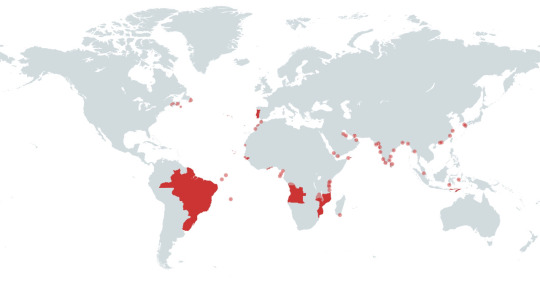
ITALIAN COLONIALISM;

FRENCH COLONIALISM;

JAPANESE COLONIALISM;
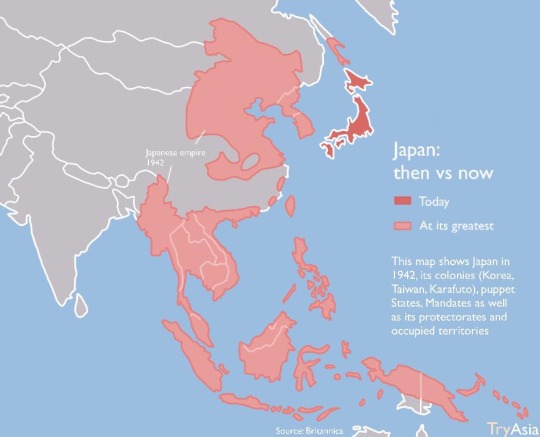
ARABIC COLONIALISM;
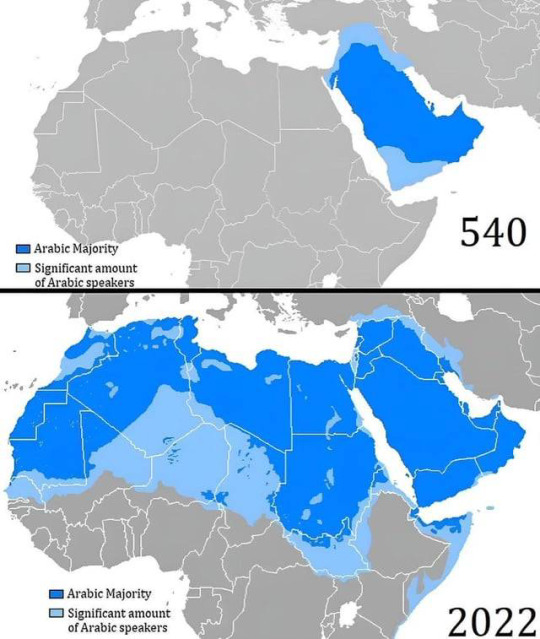
AMERICAN COLONIALISM;

ISRAEL;
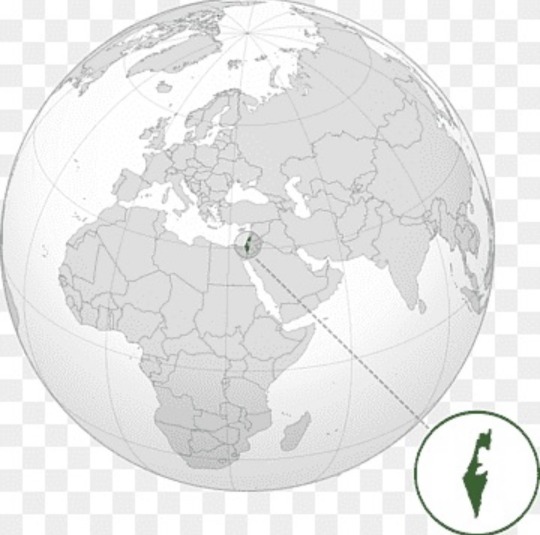

WOW. SUCH COLONY. VERY SETTLE.
WORDS HAVE MEANINGS. CAN WE STOP PRETENDING THIS WAS EVER ABOUT COLONIALISM?
THANK YOU FOR COMING TO MY TED TALK.
#the Jews are tired#Israel#Israelis#Jews#Jewish#jumblr#Jewblr#Judaism#colonization#european colonization#Europe#Japan#America#imperialism#I/p#i/p conflict#i/p war#am yisrael chai#עם ישראל חי#history#world history#propaganda#discrimination
2K notes
·
View notes
Text
I’m was watching a video about a Jewish custom, and the entire comment section was like this
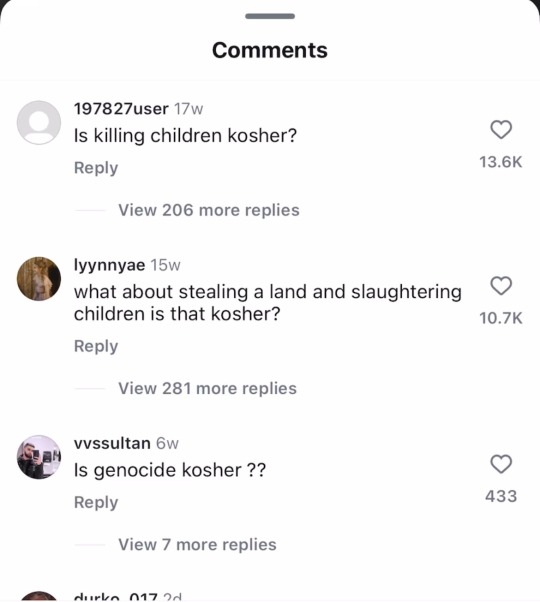
It’s about anti Zionism my ass.
This is the case whenever a post has Hebrew/ Jewish symbols/ etc. it’s obviously not about Israel.
#israel#jewish#israeli#jewblr#israel palestine conflict#gaza strip#ישראל#טאמבלר ישראלי#hamas is isis#middle east#jumblr#Gaza#gaza strikes#עברית#current events#human rights#middle eastern history#antisemitism#ישראלי#news on gaza#iran#yemen#free gaza#gaza genocide#believe jewish women
2K notes
·
View notes
Link
#Context of islands#Federal Government#Headlines#Military#China-US relations#Cold War#Conflict history#Contextomy#Cultural consequences#economic development#economic impact#Environmental concerns#Geopolitical considerations#Local communities#Military bases#Military interests#North Korea#Pacific Theater#Recent conflicts#Self-determination#Social implications#Sovereignty#Spanish-American War#Strategic importance#US Territories#World War II
0 notes
Text
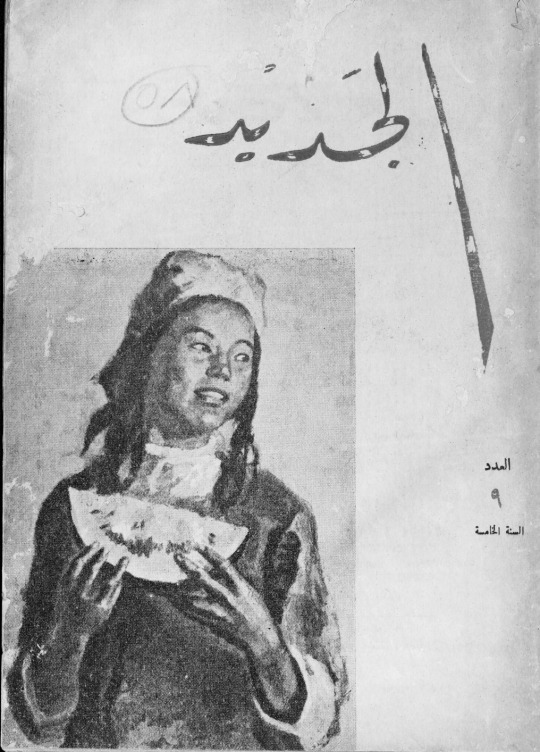




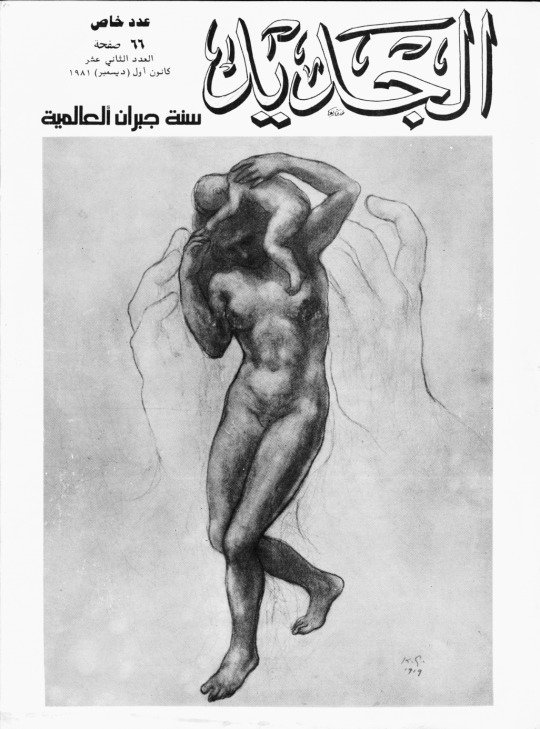
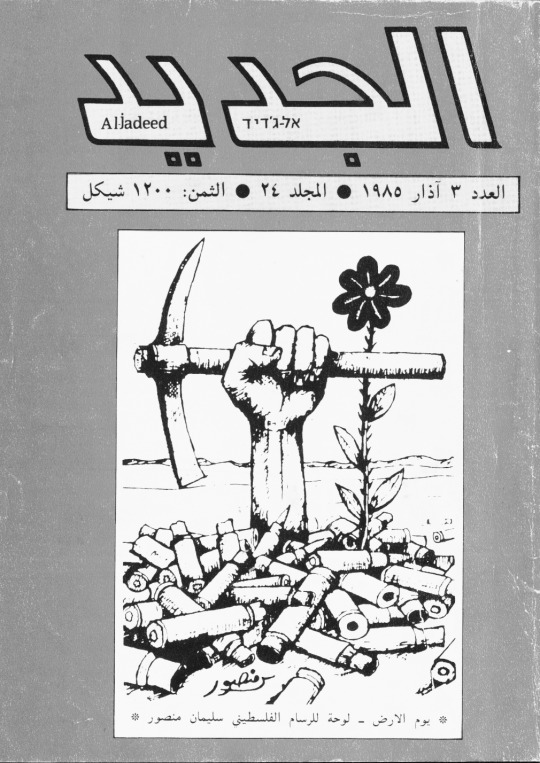
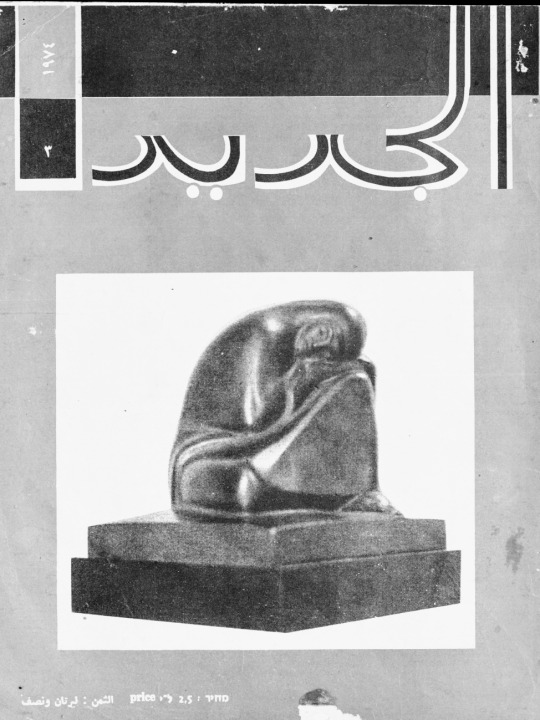
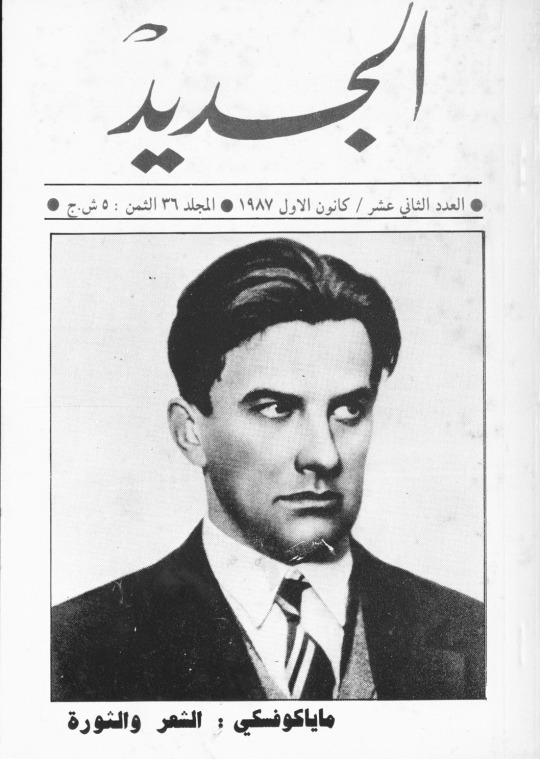

Archives from the vintage Palestinian magazine Al-Jadeed (The New), a monthly magazine for progressive national thought and culture established in (1951). 🇵🇸🕊️🍉
Source: the Palestinian Museum / the Digital Archive
#This magazine has a longer history than is-r-ael#palestine#free palestine#palestinian genocide#palestine genocide#palestinian culture#vladimir mayakovsky#Gaza#free gaza#israel palestine conflict#from the river to the sea palestine will be free#History#Art#Earth day#israel is a terrorist state#West bank#jerusalem
3K notes
·
View notes
Text
Oh this makes me so fucking mad

So SO fucking mad
You mean israelites, hebrews ffs you mean CANAANITES
THERE WEREN'T PALESTINIANS 3,000 YEARS AGO
THERE WERE JEWISH KINGDOMS
If the tatreez originated 3,000 fucking years ago it makes it jewish, israelite. NOT palestinian
This horrendous cultural and historical erasure of a whole ass ethnic group is absolutely sickening
This accepted activity of rewriting and changing jewish history is so fucking disgusting
This is the kinda shit that makes it so hard for me to feel sympathy and accept the modern palestinian identity
ITS NORMAL FOR NEW IDENTITIES TO EMERGE AND BE BORN, BUT ITS NOT OK TO CHANGE HISTORY SO IT'LL LOOK LIKE YOU HAVE AN ANCIENT AND NATIVE IDENTITY!
I Just fucking hope for the sun to blow us all up soon ffs
#israel#palestine#from the river to the sea yall can suck my d#gaza#ישראבלר#jewish#jews#cultural erasure#Historical erasure#History#Culture#Tatreez#palestinian propaganda#israel palestine conflict#Palestinian identity#JEWS ARE NATIVE TO ISRAEL#JEWS ARE INDIGENOUS#diaspora#am israel hai#jumbler#free israel from terrorism#FREE JEWS FROM HISTORICAL AND CULTURAL ERASURE#Pallywood#jewish history#Judea#stop erasing jewish nativity for your propaganda#arabic is not native to israel#arab identity is not native to israel#Arabs#jerusalem
800 notes
·
View notes
Text

When you see an "antizionist jew" remember what you are looking at
#ישראל#ישראלבלר#ישראלים#טמבלר ישראלי#טאמבלר ישראלי#ישראבלר#עם ישראל חי#israel#israeli#i stand with israel#עברית#חרבות ברזל#ישר#ישרבלר#jewish history#jewish#jewblr#jewish tumblr#jumblr#Judaism#gaza#hamas#israel palestine conflict#gaza strip#palestine#palestinian#hammas is isis#jerusalem#israel news#pro israel
748 notes
·
View notes
Text
As A Jew, I Have No Ancestral Rights To Palestine
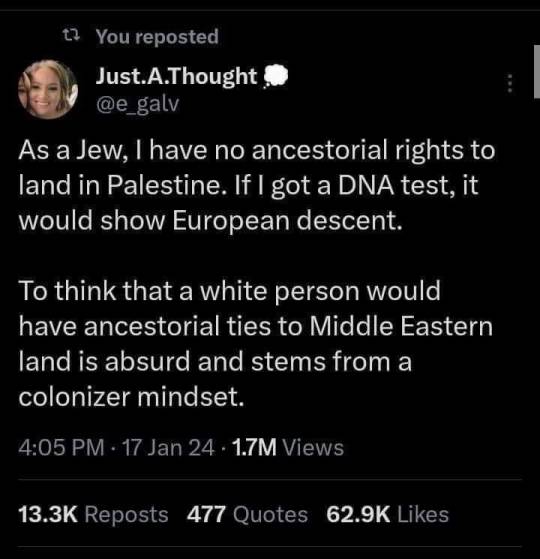
"As a Jew, I have no ancestral rights to the land of Palestine. If I got a DNA test, it would show European descent.
To think that a white person would have ancestral ties to Middle Eastern land is absurd and stems from a colonizers mindset."
e_galv
#palestine#free gaza#palestinian genocide#ceasefire#current events#endisraelsgenocide#palestine resources#palestine news#palestine will be free#palestine genocide#palestine under attack#hamas#middle east#israel palestine conflict#iof#palestine history#palestinians#israel#gaza#palestinian lives matter#free palesitne#lebanon#palestinian uprising#palestinian resistance#palestinian children#palestinian history#palestinian hostages#palestinian health ministry#i stand with palestine#palestinians are people
2K notes
·
View notes
Text

Kendrick Lamar performing at the 59th annual Super Bowl Half-time Show 2025
#kendrick lamar#pglang#super bowl#kdot#I was conflicted#to pimp a butterfly#mr morale and the big steppers#not like us#black culture#black icons#black history#hip hop#rap culture#deion sanders#west coast#music archive#los angeles#black history month#Mr morale#black in america
319 notes
·
View notes
Text

#hezbollah#hamas#israel#zionism#hezbollah response#hamas response#israeli occupation#land theft#israeli war crimes#israel palestine conflict#israeli violence#middle east conflict#resistance movements#israeli oppression#israeli apartheid#hezbollah history#hamas history#israel occupation backlash#palestinian resistance#hezbollah and hamas origins
379 notes
·
View notes
Text
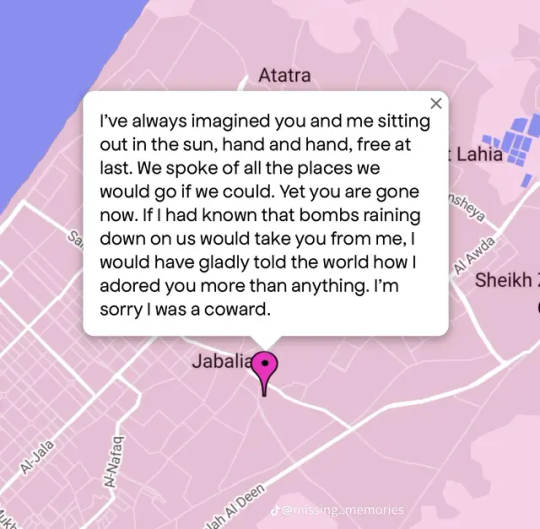
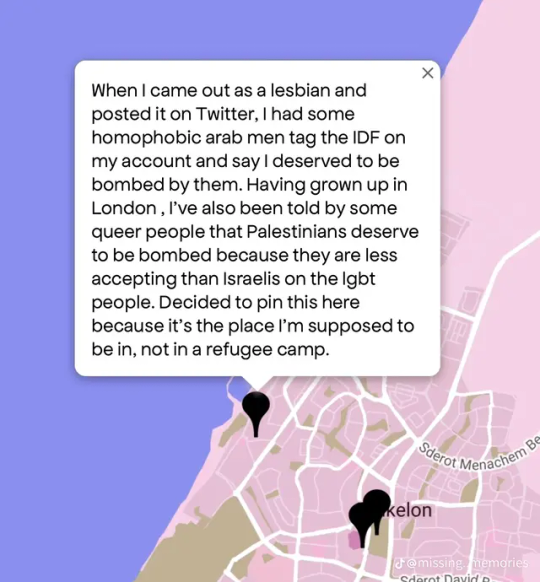
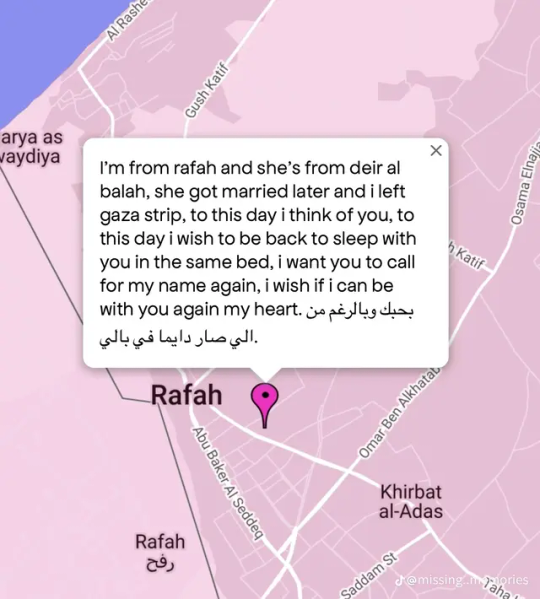
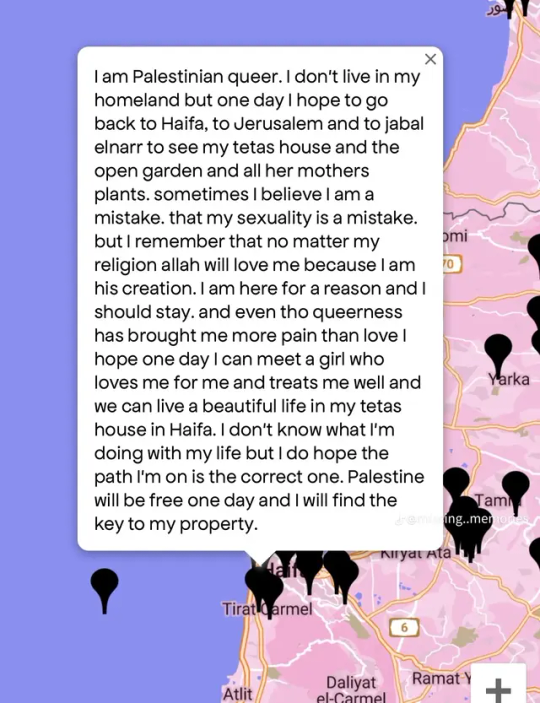
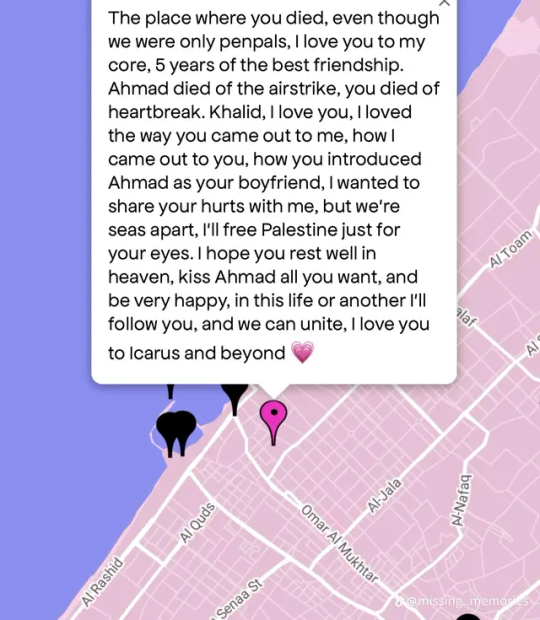
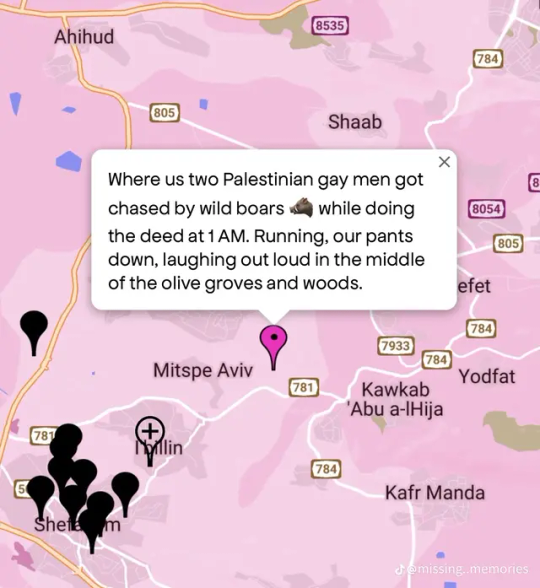
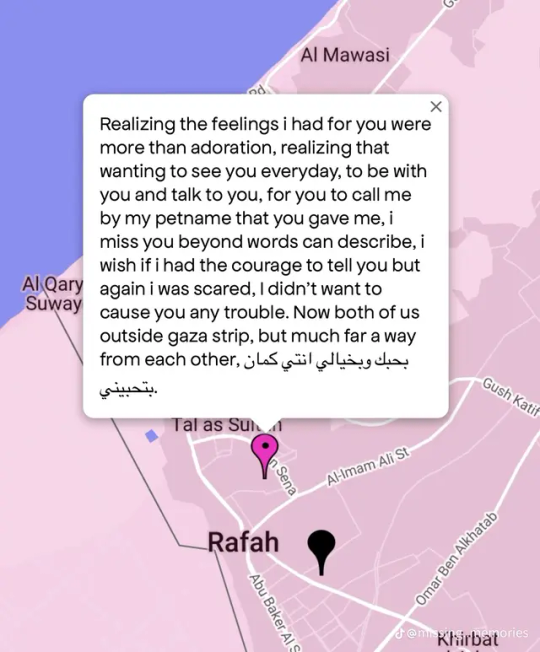
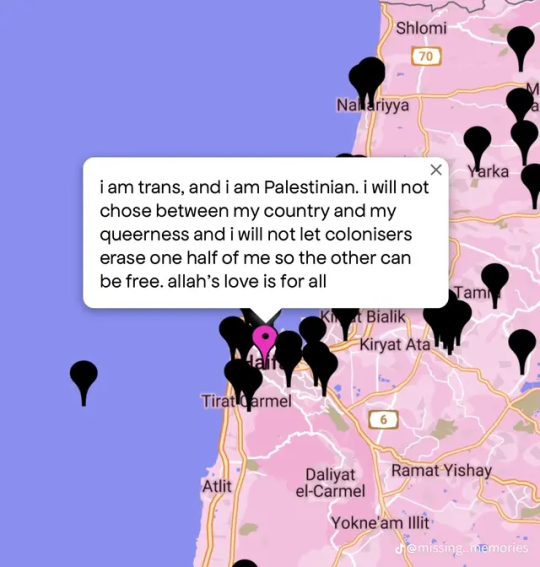
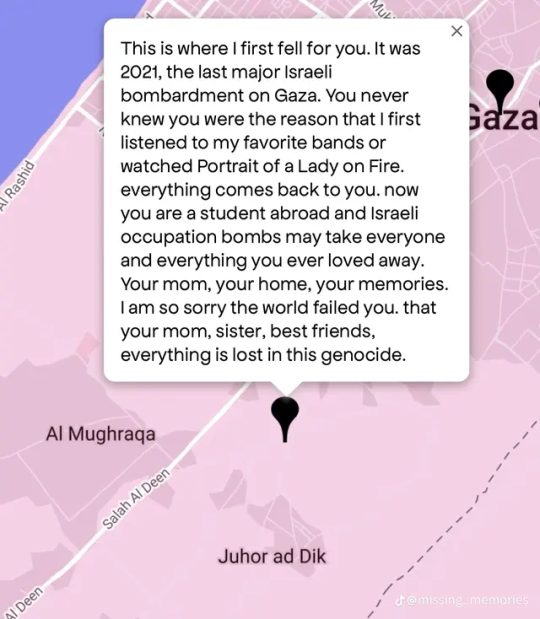
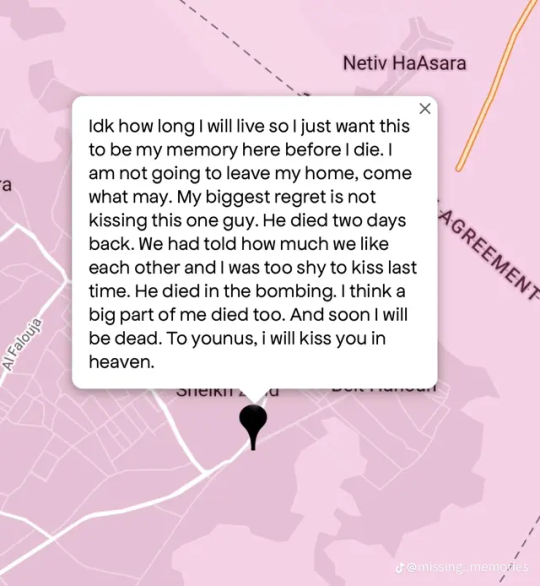
a collection of queer Palestinian stories in Gaza from queering the map.
Don't let pink washing get to your head. Queer people live everywhere, including in Gaza, where they are currently being massacred.
images are from the tiktok link i attached, there's even more there.
#free palestine#free gaza#gaza#palestine#poetry#israel palestine war#israel palestine conflict#israel#israhell#queerness#queer#queer history#queer community#lgbtq rights#lgbtq+#lgbtqia#lgbtq community#lgbtq writing#lgbtq stories#queering the map#equality#lgbt#lgbt rights#lgbt community#queer palestinians#pink washing#pinkwashing#genocide#gaza genocide
1K notes
·
View notes
Text
✡️✨JEWS ARE INDIGENOUS TO THE LAND OF ISRAEL. PASS IT ON. ✨✡️
#jumblr#jewblr#jewish history#jews#jewish#judaism#israel#palestine#i/p#i/p conflict#jews are indigenous to israel#jews are native to israel#jews are indigenous to judea
685 notes
·
View notes
Text
Hi! Just a little reminder: People who are ethnically Jewish are not white. We are Indigenous to the Levant. There are many studies done to prove so. Please respect that. We are not white colonizers. We are neither white nor colonizers. Idk why this concept is so hard for people to understand.
#jewish#jumblr#judaism#pro israel#bring them home#i stand with israel#jewish history#bringthemhomenow#israblr#pro palestine#anti zionisim#palestine#israel#i/p conflict#i/p#i/p war#i/p tw#antisemitism#jewblr#fuck hamas#i/p stuff
302 notes
·
View notes
Text
You don’t deserve to celebrate a ceasefire if you called for an intifada
#israel#jewish#israeli#jewblr#israel palestine conflict#gaza strip#ישראל#טאמבלר ישראלי#middle east#hamas is isis#Gaza#jumblr#ceasefire#ceasfire now#war on gaza#israel gaza war#current events#human rights#antisemitism#עברית#middle eastern history#gaza strikes#ישראלי#news on gaza#iran#yemen
1K notes
·
View notes
Text
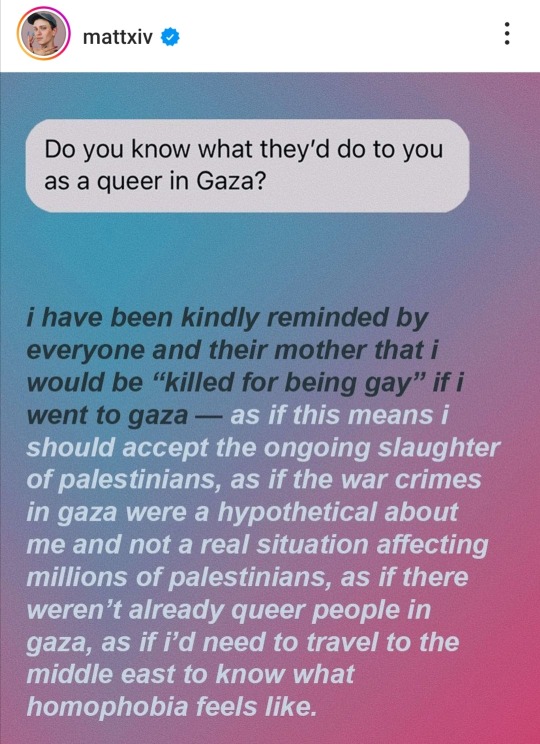
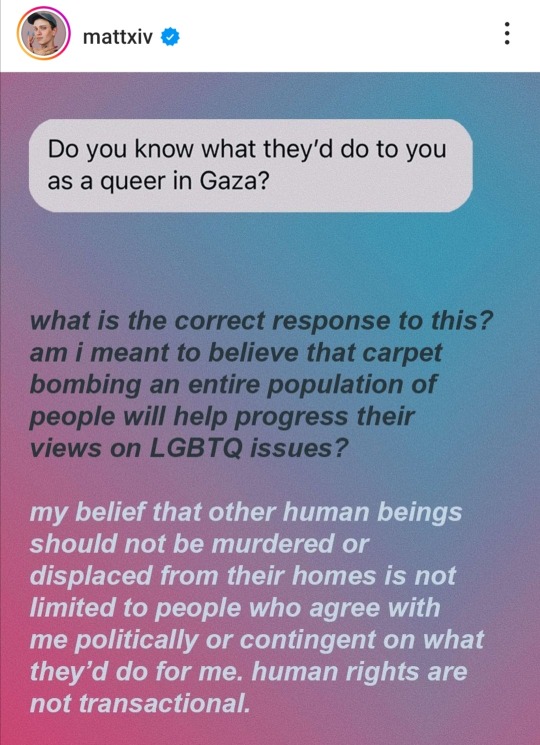

Credits to mattxiv on instagram for the original post.
This kills me that they think queer Palestinians don't already exist. Just because you don't hear about them doesn't mean they aren't here. They just have to hide.
Laws won't make us disappear. They will just force us to hide more. It's a dangerous way of thinking to believe that making our identities illegal will make us disappear. Because what stops them from making us illegal in the rest of the world then? They're already trying to erase us, if they now start to think they can make us cease to exist just with a bunch of laws, you can be sure that they will try as hard as they can.
Queers existed before straight bigots gave us the authorisation to exist. We didn't pop up when you made us legal. We fought for our rights. We rioted. We said "We're here, we're queer, get used to it" long before you graced us with the right to walk by your sides. We were here before. We'll be here forever. No matter what you do, no matter the laws. We've always existed and we'll always exist.
We're here. And we're queer.
#i should probably tag this but now that my serious talk is over i have no idea what to say#the eloquence lasted for 5 minutes lmao#queer community#queer pride#queer#queer issues#queer struggles#queer history#palestine#queers for palestine#palestine genocide#free gaza#israel palestine conflict#palestinians#palestine gaza#gaza
2K notes
·
View notes
Text
I don't know if Lizzie Borden did or didn't Do It, but what matters more is what she did afterwards:
moved to a grand house with her sister and had intense, Ambiguously Gay friendships with actresses until her death at age 66
there's a terrible slasher film called Lizzie Borden's Revenge and I'm like. revenge for WHAT. what about the entire rest of her life could possibly leave her feeling in need of vengeance. barring local notoriety and the emotional toll thereof, the rest of her life was excellent
#history#lizzie borden#if she Did It she wasn't a serial killer#if she Did It she only did it once. that wasn't like her defining personality trait#also I cannot emphasize enough how murky the whole question is there#some people assume the trial was a sham and it's clear that she did it. it's Decidedly Not#circumstantial evidence. allegedly 'conflicting' testimonies that possibly only conflict because she was loaded up with laudanum#to calm her nerves#other enemies of Andrew and Abby in Fall River at the time (there was suspicion that someone had tried to poison the whole family earlier)#(including Lizzie herself)#it is far from a foregone conclusion that she killed them
312 notes
·
View notes